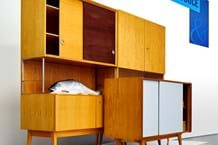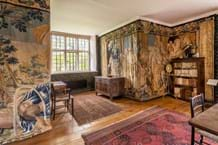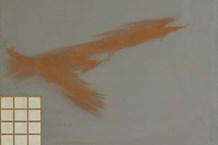This may explain why Christie’s salerooms on East 67th Street provided the launch pad for American trade bidding on this autograph manuscript, by The Father of Astronautics, Konstantin Tsiolkovski at a sale of space-related artefacts on September 18.
Dated 1911 and bound in two parts entitled The characteristics of the principal parts of the Flying Apparatus/Rocket and The continuation on the subject of the Outer Space Research by Rocket Devices, the groundbreaking manuscript was the culmination of engineering research which the autodidact schoolteacher would continue during the long summer evenings and holidays. In 1899, the virtually penniless Konstantin finally received a grant of 470 roubles from the Physics and Mathematics Department of the Academy of Science to explore the principles of the reaction thrust motor he had designed the previous year and in 1903 he published articles on rocket propulsion with the proposition that Newton’s Third Law could be overcome by combusting a mixture of hydrogen and liquid oxygen with sufficient upward force to enable humans to escape the earth’s gravity.
This hypothesis is developed further in the first part of the 1911 manuscript, including discussion of ‘rocket-trains’, the carriages of which would be discarded one after the other as their fuel burnt out, while the second part primarily explores the habitual difficulties likely to be faced by human beings operating in a space-capsule, such as eating, drinking and defecation. Tsiolkovski also examines basic needs such as space-suits, pressurization and solar energy retention, prophesying that “...my work will find its application. The time will come when ships will be travelling the ocean of space at the highest speed in every direction”. Tsiolkovsky’s manuscripts are almost unknown on the open market, and this one sold to an American dealer at $50,000 (£31,850) (plus 15 per cent premium).
The true origins of the space race
UK: THE Russians had the brains for a head start in the space race but the Americans possessed the capital to fund a sustained interest in rocket programmes.




